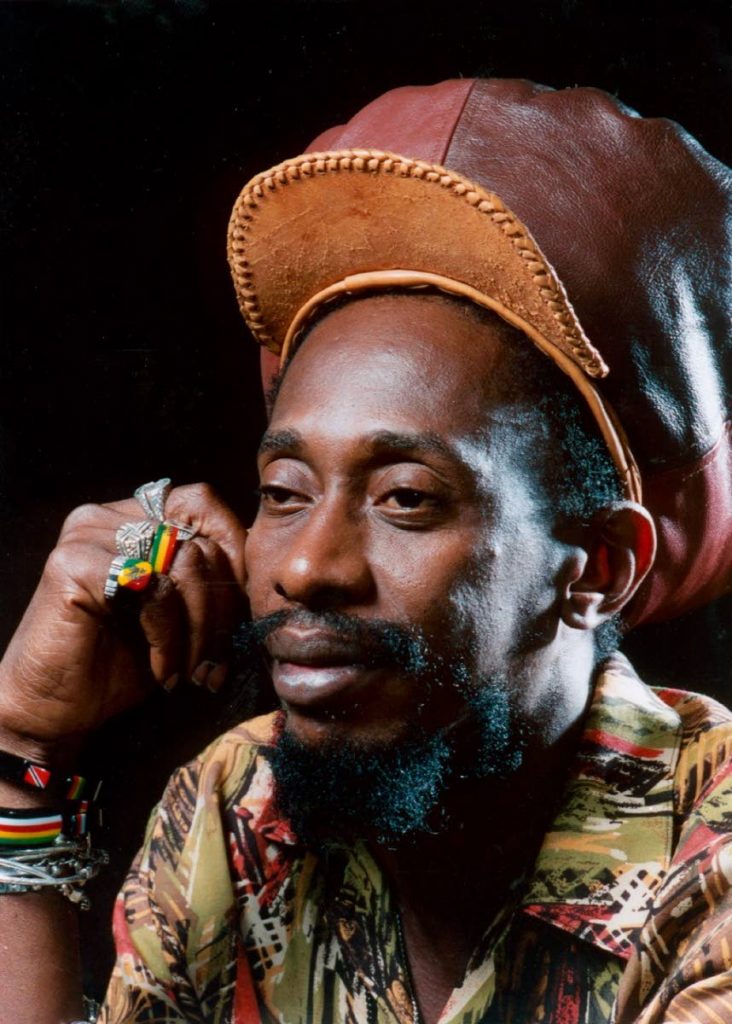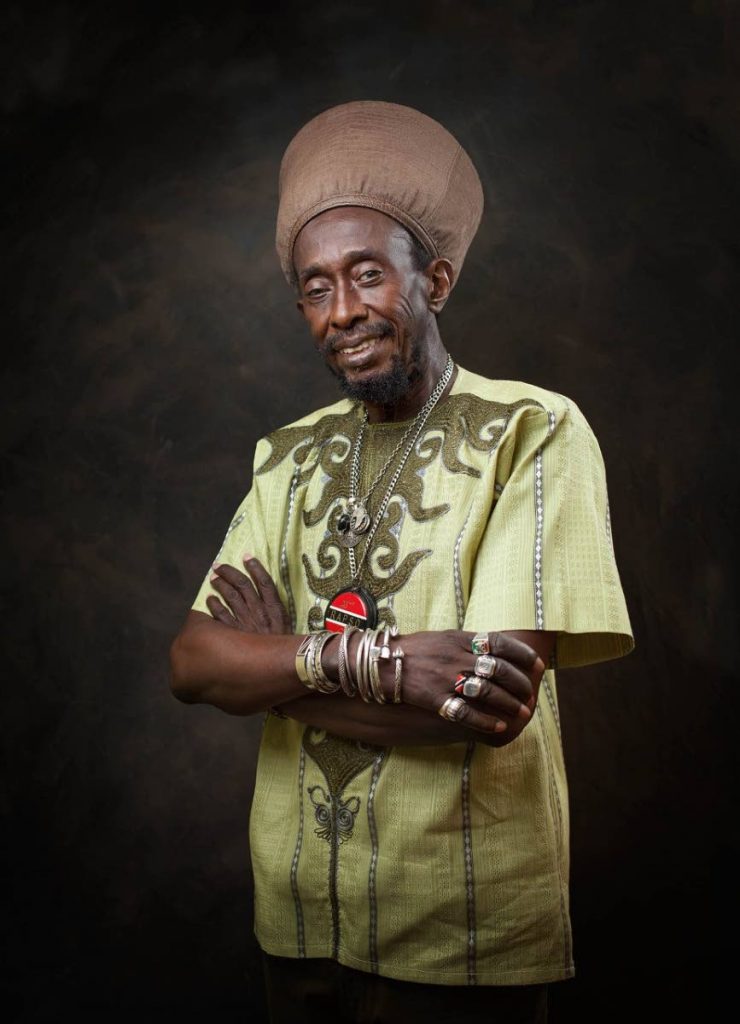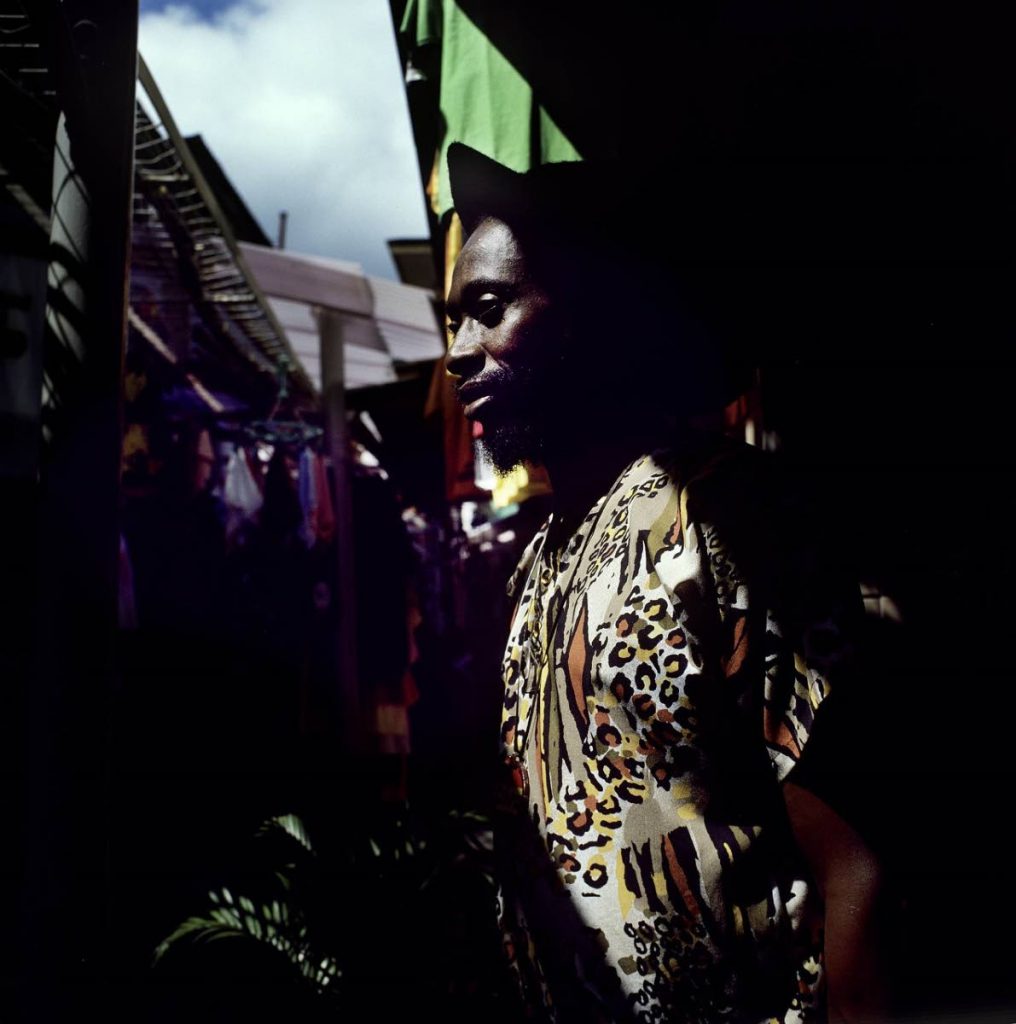Brother Resistance’s lifelong message: Stand firm for your culture

During his lifetime, Brother Resistance seemed to be one of those proverbial prophets, never appreciated in his own land as much as he was appreciated outside TT.
His rapso music, a soulful, rhythmic blend of African drumming, Trinidadian pan and chantwell-inspired vocals, inspired a distinct musical voice that embraced Trinidad creole as our defining language.
Some of his most famous songs – Dancin Shoes Rapso and Ring de Bell – evoked cultural awareness and preached the message of supporting local culture, while Mother Earth created environmental awareness, decades before these two issues became popular causes.
Brother Resistance, who died of cancer on July 13, at West Shore Medical Private Hospital, Cocorite, was a pioneering force for rapso music, but he always credited Lancelot Layne as the father of rapso.
Lorraine O’Connor, a creative sector specialist, first met him in 1989, when she came back to Trinidad to make her first film, Calypso Roots.
“We were given Resistance’s name from a guy in Paris. We learned about him outside of Trinidad,” she said.
A few years later, Brother Resistance became one of the first singers to sign with Rituals Music, founded by O’Connor, Jean Michel Gibert and Rosemary Hezekiah.
O’Connor recalls the joys of recording Brother Resistance and especially remixing the late Lord Pretender’s Never Every Worry in 1997. Resistance wove rapso through the classic calypso. O’Connor recalls the respect he had for Pretender (Aldric Farrell).

“He was very protective of Pretender.”
Throughout the calypso, Brother Resistance refers to Pretender as a calypso icon.
“He’s a living legend in the house of kaiso,” he sings.
Brother Resistance always celebrated the history and culture that preceded him.
“In those early days of recording, we were the heart of rapso,” said O’Connor. “Brother Resistance led the way. Then came Kindred and Black Lyrics.”
“If it wasn’t for Brother Resistance, we wouldn’t be who we are today,” a Facebook post by Wendell Manwarren and the popular rapso group 3canal said after the death of Brother Resistance. The post described the rapso stalwart as “humble, rooted, real, wise, committed and strong.”
Together with other calypsonians, O’Connor and Brother Resistance toured France and Italy. In television interviews, which can be viewed on YouTube, Brother Resistance spoke of the mass appreciation he received at Reggae on the River in California.
“I had never experienced anything like that,” he said, referring to the vast crowds and enthusiastic reactions to his music. Talking about a tour of Italy, he smiled while recalling Italians reacting to the one sentence he learned in their language: “Raise your hand.”
He marvelled that Italians obeyed his command.
O’Connor described the late rapso artiste as “charismatic. He enjoyed life, but he was a serious guy. He was a lover. He loved women. He touched so many people.”
A lot can be learned of Brother Resistance by tracing his names. Born in 1954, Roy Lewis took the name of Resistance when he performed as a DJ at Queen’s Royal College (QRC) events. As he became even more culturally conscious, he became known as Brother Resistance and also took the African name of Lutalo Makossa Masimba.
Proud of his roots in the East Dry River, which he called “the cultural heartbeat of TT and the Caribbean,” Brother Resistance often told the story of the role music played in his life.
“Where I grew up, music was in the atmosphere. Orisha yards, steelbands like Desperadoes, Renegades and City Syncopators were a part of our vibes. We grew up playing basketball on the street during the day and came out at the night for the music,” he said in a Rapso Roots interview.
Resistance had a bachelor’s degree from UWI in history and economics and a master’s degree in cultural studies. He was working on a PhD. Still, he preferred a down-to-earth persona to an academic image.
Politicians had deemed him subversive during the Black Power Movement of the 70s, but over time, he became a beacon of hope for a post-independence TT identity.
In 1979, Brother Resistance formed the Network Riddim Band with Everard Romany, known as Brother Shortman. The band’s first recorded song, Dancin Shoes Rapso, was a scathing commentary on Trinidadians who put on their three-piece suits and headed for the disco.
“It was the height of the disco craze,” said Brother Resistance.

He sings, “You put on your dancing shoes and you gone to the disco. Bad girls and funky boys masquerading. They boogie on down to the ground and you nah give a damn for your culture…See you like John Travolta, hot with night fever, but when the good times are over you still scruntin’…I see you like a robot and you nah give a damn for your culture.”
The Network Riddim Band released its first album, Roots of de Rapso Rhythm, in 1984. Then came Rapso Explosion in 1985 and Rapso Takeover in 1986. In 1991 the band released Touch De Earth, with Rapso followed the next year by Heart of the Rapso Nation. Rituals Records released De Power of Resistance in 1996. Two albums were released in 2001, Let Us Rejoice and When De Riddum Explode.
Resistance viewed rapso as a music that got to the heart of calypso.
“The foundation of calypso is drums and chant,” he said in the Rapso Master, an interview for Caribbean Insight TV. “Rapso is the power of the word and the rhythm of the word, the poetry of calypso. The first poets were the calypsonians.”
His rapso straddled poetry and song, reaching back culturally to the African griot storyteller and the Trinidad chantwell. It was a rootsy music meant to spark pride in cultural awareness. For Brother Resistance, this was not an act designed for the stage. Always dressed in colourful African cotton prints and a hat large enough to hold his dreadlocks, Brother Resistance lived TT culture.
“Brother Resistance reminded me of two cultural giants, Sprangalang and Black Stalin,” said Dr Kim Johnson, the former head of the Carnival Institute. “That is, he was unrelenting in his vision of what TT should be, and he projected all of that vision through the lens of the working-class TT dialect.”
It is a fitting description of a man who straddled the oral tradition that comedian and historian Sprangalang (Dennis Hall) represented and the calypso music that Stalin (Leroy Calliste) represents.
“As an artiste, he never wavered in his commitment to rapso, his way of tapping into the roots of TT oral traditions,” said Johnson. “He spoke in an emphatic patois, which at times made him sound, to middle-class ears, less educated and less knowledgeable, than he was. But that was a grievous misconception.
“Resistance was deeply cultured and he thought deeply about the challenges facing this country. His intelligence was razor-sharp, although he usually appeared to be half-asleep, perhaps because he was bored with the everyday concerns of people.”
O’Connor said, “He was an engaging person, always interested in other people. There are people who listen, but never ask questions or don’t really care about others. He loved finding out things about people.
“I think of some of the songs he sang about 30 years ago, including Mother Earth, about respecting the environment – and we are still fighting those issues. The video we did for Mother Earth was real basic, but the message was so powerful and so ahead of its time.”
In Mother Earth, Resistance sang, “Let the vibes be one with you, Mother Earth…I only want to know you. To know you is to love you…From you all material comes, to you everything material returns. We take you for granted, Mother Earth.”
In many ways, Brother Resistance’s life can be summed up in one word: loyalty. He remained loyal to his culture, his music and the people who stood by him, like O’Connor. While he was serving as president of the Trinbago Unified Calypso Organisation (TUCO), O’Connor received TUCO’s award for contribution to culture.
“I knew that was Brother Resistance’s doing,” she said.
Although he had been ill for some time, Brother Resistance kept up the cause and remained president of TUCO until the day he died.
His legacy will be his commitment to culture and his recognition of how vitally important culture and creole language are to Caribbean identity.
“His love of calypso, in all of its forms, and a love of language and expression was his real contribution,” said Robin Foster, a QRC schoolmate.
“Long before it was popular, he sang about environment issues, colonialism and supporting our culture,” said O’Connor. “I think about songs like Ring de Bell where he sings, ‘Ring de bell for culture/Ring de bell for rapso.’
“I still find TT’s powers that be don’t understand the power of culture. How many years do we have to say these messages that Brother Resistance was saying 30 years ago before people get it?”
Perhaps the greatest legacy of Brother Resistance are the unspoken messages that permeate his music: Never give up. Fight for your Caribbean identity. Cultural recognition is an ongoing battle.
Brother Resistance demonstrated that the music and creole language are TT’s greatest cultural weapons. He led the battle for cultural identity with dignity, pride and love for this country, and for that, he will always be remembered.

Comments
"Brother Resistance’s lifelong message: Stand firm for your culture"